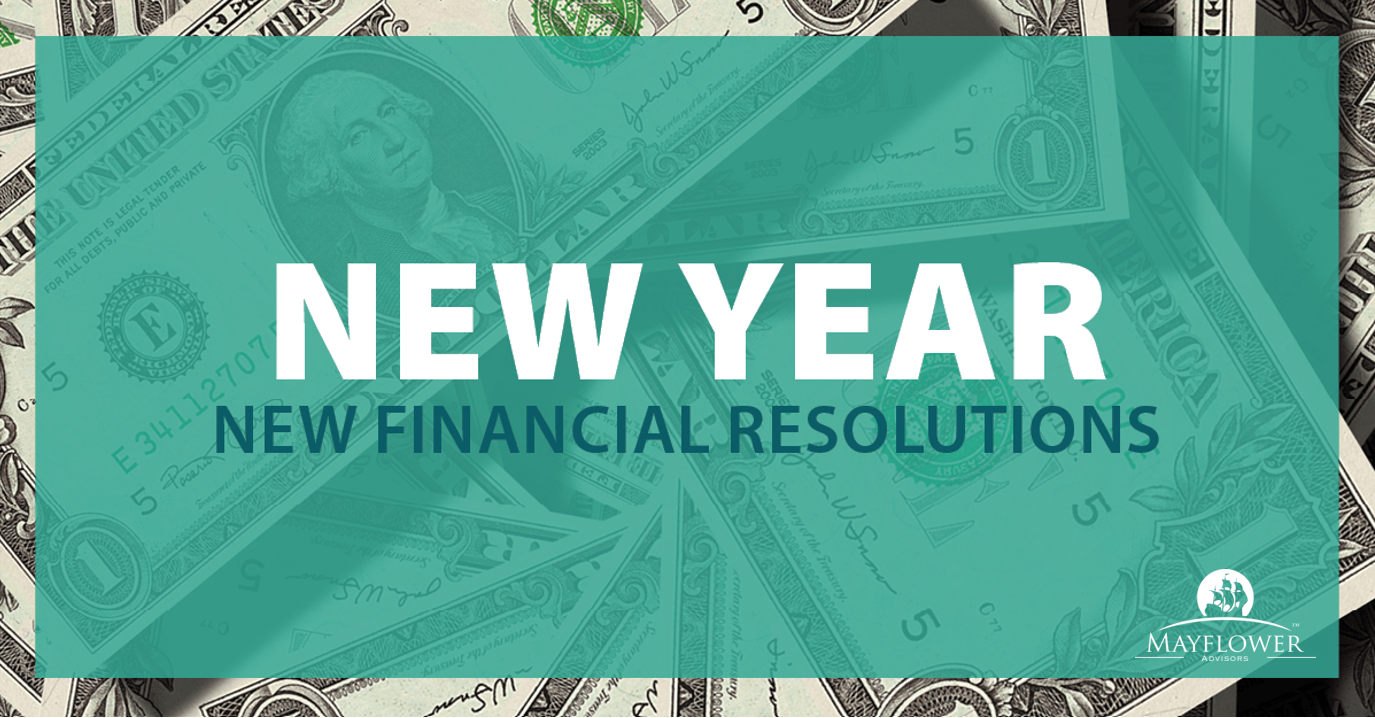
For some of us, 2020 may seem like the longest year ever and others may feel like it has flown by (or maybe a little bit of both). Normally as the year draws to a close, we reflect on the year that’s passed and start thinking about changes and resolutions. But as we know all too well, this year has been anything but normal.
For some us that may mean we are ready to re-prioritize our New Year’s resolutions. Perhaps you want to focus on spending time with your loved ones, a career-path shift or travel to an exotic location (when it’s safe, of course). No matter what you’re hoping to be able to do in 2021, one of the best things you can do for yourself and your family is to prioritize your financial fitness.
As we approach what is likely one of the most welcome flips of the calendar, we’ve come up with a list of 10 straightforward tips that can help you as you plan for your financial future in 2021—and beyond. Let’s take a look at the first five…

 1. Develop Your Budget
1. Develop Your Budget
We know that this is often the last thing that most people want to do. The word “budget” strikes fear in the hearts of many but putting one together can actually be a really helpful way to understand your financial fitness, examine your spending, help you meet your financial goals and determine where you might need to make changes. Here are some ideas to get you started:
- Determine what your income is after taxes.
- Create a list of monthly expenses, including mortgage or rental payments, auto payments, credit card bills, utility bills, childcare expenses, groceries, entertainment, eating out, travel, etc.
- If your income is more than you’re spending, that’s great! If it’s the reverse, you should probably consider some adjustments. Look at where you can cut spending to have a more balanced budget.
- Now, based on your income and spending from this year, you can set some tangible goals and try to project any changes that may affect your budget for the coming year. If you anticipate buying property, how will that affect your spending? Or maybe you’re thinking about getting married or having children or changing careers? Any major life changes should be figured in and planned for accordingly.
There’s a misconception that a budget is something restrictive; in fact, it can be quite liberating to know just where you stand financially. It can be a worthwhile and an eye-opening exercise—and help you with your long-term goals.
2. Get Your Estate Plan in Order
Estate planning involves making documented plans for how your assets will be distributed after your death and designate clear end-of-life directives should you become incapacitated before that. It’s not pleasant to ponder mortality and try to plan for your loved ones should something happen to you, but it can reduce many heartaches for your heirs, including time and money spent in probate, family discord and/or other legal hurdles.
Estate planning can be simple or much more complex, depending on your net worth and the assets that need to be distributed. While many people think that estate plans are only for the very wealthy, you may be surprised at what will need to be divvied up (both tangible and intangible assets) after you’re gone. Without proper planning, your wishes for your estate may not be carried out. At the most basic level, your estate plan should include these five elements:
- A will, which spells out your wishes for the distribution of assets.
- Beneficiary designations for your retirement and insurance accounts.
- Guardianship designations (if you have dependents).
- Assigning a healthcare proxy or durable medical power of attorney, someone who can help make medical decisions for you should you become incapacitated.
- A living will, which spells out your wishes for medical treatments should you become unable to make your own decisions.
More complex estate plans may also include setting up trusts, in which assets are held on behalf of a beneficiary or beneficiaries. They may provide some tax minimizing benefits and enable you to spell out the circumstances under which your assets are distributed.
 3. Contribute the Maximum to Retirement Funds
3. Contribute the Maximum to Retirement Funds
This is a great time to look at contributions to your retirement funds, such as 401(k)s, IRAs, 403(b)s. If you can afford to do so and your plan allows it, it can benefit you to contribute the maximum amounts allowable to your accounts. And definitely make sure to take advantage of any matching contribution that your employer might offer. Here are the limits for this tax year and next:
- For 401(k) or 403(b) accounts for 2020 and 2021, you may be able to contribute $19,500. (If you turn 50 before the end of the year, you may also be able to add an additional catch-up contribution of up to $6,500; deadline: December 31, 2020.)
- The IRA maximum contribution for 2020 and 2021 is $6,000, plus a potential catch-up contribution of $1,000. (Deadline: April 15, 2021 for the 2020 tax year.)
Your wealth manager can share detail on your unique own tax situation, and you can also find more information on the IRS Website.
4. Clean Up Subscriptions and Memberships That You’re Not Using
As a follow up on our discussion above on budgeting, determining where you might be able to cut some spending can be an eye-opening experience—which is why it bears emphasizing this tip.
Because so many of our subscriptions for television, cable, apps, online news and magazine subscriptions are automatically withdrawn, it can be too easy to not realize just how much you’re spending in this area.
This is especially true this year, when we’ve been stuck at home binge-watching as much as we could get our hands on: We’re talking internet, cable, Netflix, Hulu, Amazon Prime, HBO Max, Disney+ … you get the picture—and it all adds up. We understand the pull of “FOMO” (aka fear of missing out), especially when we’re craving the next binge-worthy show; but it may be worth considering whether or not you need ALL those channels, apps and subscriptions.
 5. Stockpile Emergency Living Expenses
5. Stockpile Emergency Living Expenses
If this year has taught us anything, it’s that we need to be prepared for the worst. Having an emergency fund that could help smooth a transition and help in the event unexpected, significantly costly events occur—like losing your job, replacing an HVAC system or covering a large, uninsured medical expense.
Financial experts used to recommend having three months saved up to cover basic living expenses. However, these days, if you can swing it, having six months in emergency funds may help you sleep better at night. Of course, this will depend on what you can afford and your life circumstances. For instance, if you have children or two homes with expenses that will need to be covered, you may want to have more saved.
Your emergency fund should be liquid, meaning you can access it relatively easily and quickly. A money market account that accrues some interest with a debit card or check-writing privileges can be a great option. However, you don’t want it to be too easy to access the funds to ensure it’s there when you really need it. As always, your personal wealth manager can help you develop a prudent strategy to anticipate your own emergency needs.
The first five of these “Financial Resolutions: New Year, New Priorities” tips are by no means exhaustive and are only meant to serve as a guide as you think about your financial fitness. We encourage you to try incorporating a couple of these pointers into your 2021 resolutions’ list and collaborate with your advisors to discuss your own unique situation and short and long-term life management needs.
Remember that assets fund goals, so check in regularly to evaluate your progress. And if you falter, simply reset to regain that focus.
Click here for Part 2 of “New Year, New Priorities” and our next five financial resolutions. In the meantime, all of us here at Mayflower Advisors wish you a safe and prosperous Happy New Year—cheers to brighter days and calmer seas in 2021!
These tips are informational in nature and not intended as individualized financial, legal or tax advice. Wealth management and financial planning decisions are complex and fluid and should be structured around each client’s unique situation and needs. Parties should carefully consider all related benefits, risks and costs and speak to their trusted advisors before making any significant decisions.
